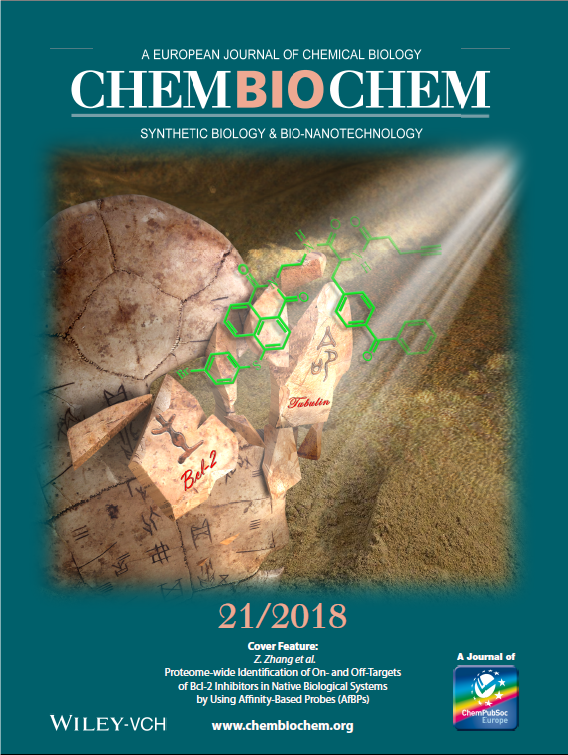
ChemBioChem (COVER): Proteome-Wide Identification of On- and Off-Targets of Bcl-2 Inhibitors in Native Biological Systems by Using Affinity-Based Probes (AfBPs)
Authors: Dr. Ziqian Wang, Zongwei Guo, Dr. Ting Song, Xiaodong Zhang, Nianzhe He, Peng Liu, Peiran Wang, Prof. Dr. Zhichao Zhang

Graphical Abstract
Affinity-based protein profiling: We have designed and synthesized trifunctional photoreactive and “clickable” affinity-based probes (AfBPs) that can enrich, visualize, and enable the identification of cellular on- and off-targets of Bcl-2 inhibitors both in vitro and in situ. We have shown that tubulin may contain BH3, having validated it as an off-target of Bcl-2 inhibitors by using these probes.

Abstract
Selective inhibition of proteins of the Bcl-2 family by small-molecule inhibitors is a promising new approach in drug discovery. However, information about how these molecules interact with their cellular targets (on- and off-) is highly limited. We have designed and synthesized photoreactive and “clickable” affinity-based probes (AfBPs)—Nap-2 and Nap-5—by introducing photo-crosslinkers onto Nap-1, a fluorescent derivative of small-molecule Bcl-2 inhibitor S1-6. The resulting trifunctional probes Nap-2 and Nap-5 can enrich, visualize, and enable the identification of cellular on- and off-targets of Bcl-2 inhibitors both in vitro and in situ. Tubulin was validated as an off-target of Bcl-2 inhibitors (Nap-1 and S1-6) by large-scale cell-based proteome profiling and pull-down/western blotting (PD/WB) with Nap-2 and Nap-5. It was preliminarily illustrated to be a BH3-containing protein because some well-known Bcl-2 inhibitors can block the labeling of tubulin by Nap-2.
https://doi.org/10.1002/cbic.201800380